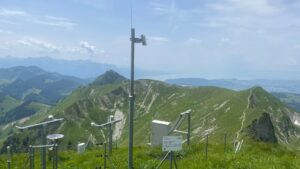FS 3.193: Water Management in Mountain Socio-Ecological-Technological Systems
Details
Full Title
Water Management in Mountain Socio-Ecological-Technological Systems under Climate Change
Scheduled
—
Convener
Co-Conveners
Assigned to Synthesis Workshop
—
Categories
Water Resources, Cryo- & Hydrosphere, Hazards, Socio-Ecology, Sustainable Development
Keywords
Hydrological modelling, Climate change impacts, Water Energy Food, Participatory scenario planning, Adaptive water management
Description
Mountain “water towers“ are essential for sustaining ecosystems and communities, supporting biodiversity, agriculture, energy, and cultural practices. Climate change disrupts these systems by altering precipitation patterns and increasing snow and glacial melt, leading to conflicts over water use and heightened risks of droughts and floods. Mountains represent vital socio-ecological systems where interactions between people and nature thrive. Sustainable integration of technological systems like dams and recreational facilities can help address societal challenges and promote climate change adaptation. This session explores the socio-ecological-technological systems (SETS) of mountain regions, emphasizing water’s central role in resilience and adaptability. Bridging social, ecological, and technological dimensions, the SETS framework provides a comprehensive approach to understanding how stakeholders – from local communities to policymakers-perceive and manage water resources, highlighting the need for adaptable models and participatory planning. Key topics include: • Conceptual socio-hydrological models to reveal feedback loops between human activities, ecological processes, and water resources. • Climate change impacts on hydrological processes and the need for advanced data and modelling to forecast future conditions. • Integrating hydrological insights into participatory planning that incorporates local knowledge, technology, and ecological values. • Global and transboundary water management in mountain regions. • Cryospheric changes and their impact on downstream communities. • Upstream-downstream interactions and water use conflicts.


